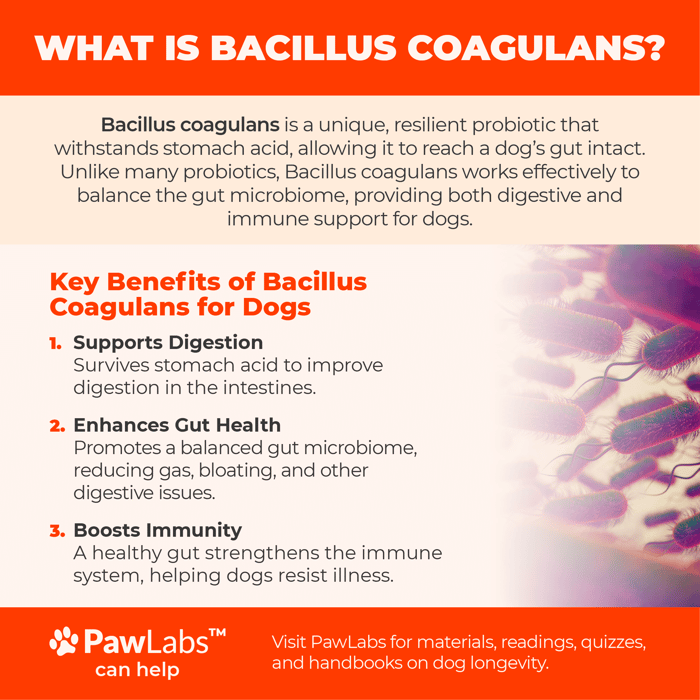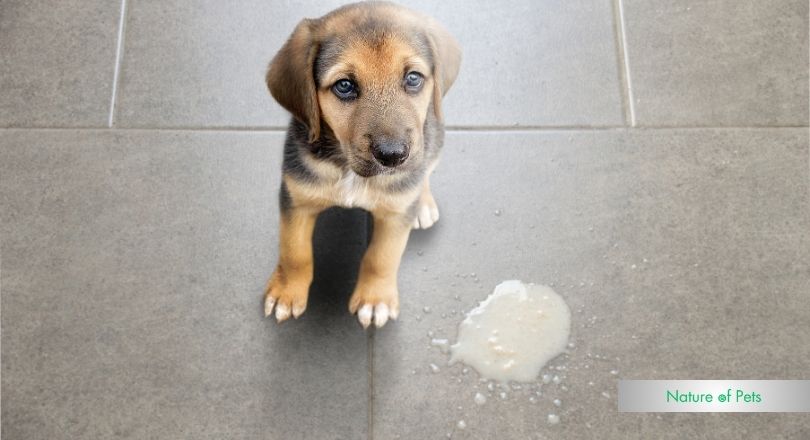If your dog has been having stomach troubles, you might be wondering if probiotics are to blame. You’ve probably heard that probiotics are good for your pet’s digestion, but can they sometimes cause diarrhea instead?
Understanding how probiotics affect your dog’s gut is key to keeping your furry friend healthy and happy. You’ll discover what probiotics really do, why diarrhea might happen, and how to use them safely. Keep reading to find out how to protect your dog’s tummy and avoid common mistakes that could make things worse.

Credit: www.honestpaws.com
How Probiotics Affect Dog Digestion
Probiotics are good bacteria that help balance a dog’s gut. They support healthy digestion and improve nutrient absorption.
These friendly bacteria can also help reduce harmful germs. Giving probiotics to dogs can sometimes change their bathroom habits.
What Are Probiotics?
Probiotics are live bacteria that live in the digestive system. They help keep the gut healthy and working well.
In dogs, probiotics can come from food or supplements. They add good bacteria to the gut to fight bad bacteria.
How Probiotics Help Dog Digestion
Probiotics support the breakdown of food in the stomach and intestines. They help digest proteins, fats, and fibers better.
Good bacteria also protect the gut lining and reduce inflammation. This helps dogs absorb vitamins and minerals more easily.
Can Probiotics Cause Diarrhea In Dogs?
Some dogs may get diarrhea when first taking probiotics. This happens as the gut adjusts to new bacteria.
This side effect usually stops in a few days. If diarrhea lasts longer, it may mean the probiotic is not right for the dog.
Signs Probiotics Are Working
When probiotics help digestion, dogs may have firmer stools and less gas. Their appetite and energy can improve too.
- Regular bowel movements
- Reduced stomach upset
- Better nutrient absorption
- Improved coat and skin health

Credit: www.amazon.ca
Reasons Probiotics Might Trigger Diarrhea
Probiotics are often given to dogs to help their digestion. Sometimes, these supplements can cause diarrhea. This happens for a few reasons.
Understanding why probiotics might cause diarrhea helps pet owners use them safely. It also helps avoid discomfort for dogs.
Adjustment Period For The Gut
When a dog starts probiotics, their gut bacteria change. The new bacteria need time to settle. This can cause loose stools or diarrhea.
This adjustment usually lasts a few days. The gut works to balance the new bacteria with the old ones.
Taking Too Many Probiotics
Giving a dog a high dose of probiotics can upset their stomach. Too many good bacteria can overwhelm the gut. This may cause diarrhea.
- Follow the dosage on the package.
- Start with a small amount first.
- Increase slowly if needed.
Sensitive Stomach Or Allergies
Some dogs have sensitive stomachs or allergies. Certain probiotic strains or ingredients might irritate them. This can lead to diarrhea or other digestive issues.
Check the probiotic ingredients before giving them to your dog. Look for any known allergens.
Poor Quality Or Contaminated Products
Low-quality probiotics may contain harmful bacteria or impurities. These can upset a dog’s digestive system and cause diarrhea.
Choose probiotics made specifically for dogs. Look for trusted brands with clear labels and good reviews.
Underlying Health Conditions
Dogs with certain health problems may react badly to probiotics. Conditions like infections or intestinal diseases can cause diarrhea when probiotics are given.
Always check with a vet before starting probiotics if your dog is sick or has ongoing digestive issues.
Choosing The Right Probiotic For Your Dog
Probiotics can help support your dog’s gut health and digestion. Picking the right one is important to avoid problems like diarrhea.
Different probiotics have different strains and strengths. Knowing what to look for helps keep your dog safe and healthy.
Check The Probiotic Strains
Some probiotic strains work better for dogs than others. Look for strains that are proven safe and effective for dogs.
Common strains like Lactobacillus and Bifidobacterium help balance your dog’s gut bacteria. Avoid products with unknown or mixed strains.
- Lactobacillus acidophilus
- Bifidobacterium animalis
- Enterococcus faecium
Consider The Dosage And Cfus
CFUs mean colony-forming units, which show the number of live bacteria. The right amount helps your dog without causing upset.
Start with a low dose to see how your dog reacts. Increase slowly if needed to reduce the risk of diarrhea.
Look For Dog-specific Products
Probiotics made for dogs are safer and more effective. They match dogs’ digestion better than human probiotics.
Human probiotics may have ingredients that upset your dog’s stomach. Always choose a product labeled for dogs.
Check For Additional Ingredients
Some probiotics include fillers or additives that can cause diarrhea. Read labels carefully to avoid these ingredients.
- Avoid artificial colors and flavors
- Watch out for unnecessary sugars
- Choose products with natural or minimal ingredients
Consult Your Veterinarian
Your vet can recommend the best probiotic for your dog’s health needs. They can also guide the right dose.
Tell your vet if your dog has diarrhea or other health issues before starting probiotics. They can help avoid problems.
Managing Diarrhea Linked To Probiotics
Probiotics help improve your dog’s digestion and gut health. Sometimes, they can cause diarrhea as a side effect.
It is important to know how to handle diarrhea caused by probiotics to keep your dog healthy and comfortable.
Start With A Low Dose
Giving probiotics at a high dose can upset your dog’s stomach. Begin with a small amount to see how your dog reacts.
Increase the dose slowly if your dog shows no signs of diarrhea or discomfort.
Choose The Right Probiotic Strain
Some probiotic strains are gentler on a dog’s digestive system. Pick a strain that suits your dog’s needs.
Consult your vet to find the best strain for your dog’s health and avoid diarrhea.
Monitor Your Dog’s Response
Watch your dog closely after starting probiotics. Look for signs of diarrhea or other digestive issues.
If diarrhea starts, stop the probiotics and contact your vet for advice.
Adjust Your Dog’s Diet
Feeding a bland diet can help ease diarrhea. Use plain boiled chicken and rice to calm your dog’s stomach.
- Boiled chicken (no skin or bones)
- White rice
- Plain pumpkin (small amounts)
Do not add spices or oils. Keep meals simple until your dog recovers.
Keep Your Dog Hydrated
Diarrhea can cause dehydration quickly. Make sure your dog drinks enough water every day.
You can offer ice cubes or small amounts of low-sodium broth to encourage drinking.
Consult Your Veterinarian
If diarrhea lasts more than a day or worsens, see your vet right away. Your dog may need treatment.
Your vet can check for other causes and suggest the best probiotic plan for your dog.

Credit: pawlabs.co
Frequently Asked Questions
Can Probiotics Cause Diarrhea In Dogs?
Yes, probiotics can sometimes cause diarrhea. This often happens when a dog is first introduced to them.
How Long Does Diarrhea From Probiotics Last In Dogs?
Diarrhea usually lasts a few days. It should resolve as your dog’s system adjusts.
Should I Stop Probiotics If My Dog Has Diarrhea?
Pause the probiotics. Consult your vet to ensure it’s safe to continue giving them.
What Types Of Probiotics Are Safe For Dogs?
Dog-specific probiotics are best. They are formulated for canine digestive systems.
How Can I Prevent Diarrhea When Giving Probiotics?
Start with small doses. Gradually increase to the recommended amount to avoid digestive upset.
Conclusion
Probiotics can sometimes cause diarrhea in dogs, especially at first. This usually lasts a short time. Dogs’ stomachs need to adjust to new bacteria. Giving probiotics in small amounts helps reduce this risk. Always watch your dog closely after starting probiotics.
If diarrhea continues, stop the supplement and talk to your vet. Probiotics can support dog health when used carefully. Understanding the signs helps keep your dog safe and happy.

